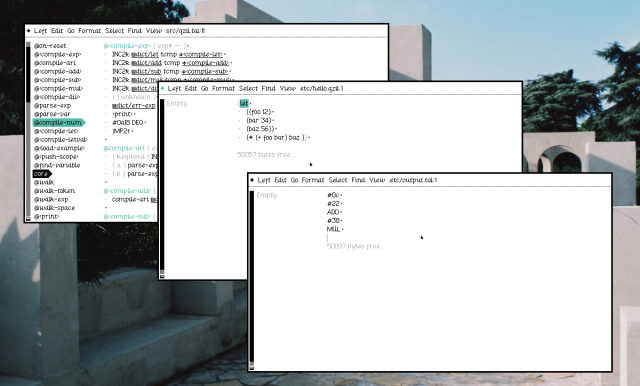I got wondering how much work it would be to compile s-expressions to #uxn, it turns out, not a lot.
As a test, I've only implemented ≤t, but it's shockingly easy to map lisp-like syntax to the uxn assembly, I might push this further still.
https://git.sr.ht/~rabbits/qzil/tree/master/item/src/qzil.tal
This entry was edited (10 months ago)


Devine Lu Linvega
Unknown parent • • •ferunando
in reply to Devine Lu Linvega • • •@spnw 🤔 to me it feels... sideways? a dual approach kinda thing... like in quantum mechanics where you can write the same system in more than one basis but the underlying dynamics is the same? and i don't mean in the sense that both are programming abstractions.
sorry, got rambly. haven't studied programming languages development theory, but yeah, i love this kinda shared thing between both styles.
Forth Co-Processor
in reply to Devine Lu Linvega • • •Devine Lu Linvega
in reply to Forth Co-Processor • • •Ramsey Nasser
in reply to Devine Lu Linvega • • •WimⓂ️
in reply to Devine Lu Linvega • • •Devine Lu Linvega
in reply to WimⓂ️ • • •Devine Lu Linvega
Unknown parent • • •https://wiki.xxiivv.com/site/secd.html
XXIIVV — secd
wiki.xxiivv.comDevine Lu Linvega
Unknown parent • • •minikomi
in reply to Devine Lu Linvega • • •